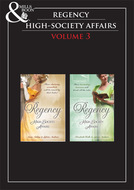Kitap dosya olarak indirilemez ancak uygulamamız üzerinden veya online olarak web sitemizden okunabilir.
Kitabı oku: «Christmas 2011 Trio A», sayfa 3
Four
Julie was proud of her father, and so pleased that he’d been granted this opportunity. Abraham Lincoln Junior High where she taught was only a short distance from Fletcher Industries. The first day he was scheduled to work, she suggested she ride in with him and then take her bike from the complex to the school. She planned to do the same thing in reverse every afternoon, unless there was a late meeting scheduled or one of her teams had a practice or a game. It was hard to find opportunities to exercise, and this seemed a good solution, in addition to giving her extra time with her father. Folding a change of clothes into her backpack, she dressed in her spandex pants and nylon shirt. She attached her bicycle to the carrier on the rear of the Ford, then joined her father in the front seat.
“Are you excited?” she asked. If he wasn’t, she certainly was. Her father could use a psychological boost. It’d been a long dry spell for both of them.
He shrugged.
“Well, I am.” It felt, in some strange, inexplicable way, as if they could finally begin to heal—as if their time of grieving was about to end. Not that either of them would forget Darlene Wilcoff. She was alive in their hearts and would forever remain a part of them. Now, four months following her death, this crisp, clear late-November morning seemed filled with renewed promise.
“You’re sure about this bicycle business?” her father muttered as he started the engine. “I don’t like the idea of you riding back in the dark.”
“It’s perfectly safe, Dad,” she said, half-tempted to say that at thirty, she was well beyond the age of needing parental supervision. “I’m wearing a helmet and a vest that reflects in the dark, plus the bike has a flashing light in the front and the back.”
He grunted, obviously still disapproving, but didn’t argue further. As they reached Fletcher Industries, her father slowed. “You’ll need to be here at five this afternoon.”
“I will.” That would allow her time to finish up some paperwork and cycle back to the complex. “Where would you like me to meet you?”
He frowned as if he hadn’t considered this earlier. “In front of the building would probably be best. The parking lot is a secure area and I don’t want you going in there without me.”
“Okay. I’ll see you at five.”
Her father pulled up close to the tall office building and put his car in Park while Julie climbed out. Other cars had already started to arrive, and a delivery truck circled toward the back of the complex.
Julie walked to the rear of the Ford and removed her ten-speed. Her father drove off once he’d pointed out where they should meet. His taillights disappeared as he turned the corner and drove toward the employees’ designated parking area, joining a line of other vehicles.
Julie had just finished snapping the helmet strap under her chin when a sharp male voice spoke from somewhere behind her. She whirled around.
“What’s your business here?” Oh, great, her father’s first day and she was going to have a confrontation with a security guard.
“Hello,” she said, smiling warmly. “I’m Julie Wilcoff. My father—”
“I asked you to state your business.”
The man was no guard, Julie could now see. He was tall, an inch or two more than her five foot eleven, and dressed in a dark suit, expensive, judging by the cut, although she didn’t have a discerning eye when it came to fashion. He might have been handsome, but scowling as he was, he appeared intimidating and in no mood for excuses.
“I’m on my way to school.”
His expression implied that she was lying.
“You’re not a student.”
“No, I’m a teacher. My father dropped me off here to show me where I should meet him tonight when he’s finished work. Are you Roy Fletcher?” This could be the man her father had described; his attitude certainly resembled that of the company owner.
The man ignored her question. “Your father is Dean Wilcoff?”
“Yes.” She had to bite back the urge to call him sir. It’d been a long time since any man had intimidated her, and she wasn’t about to let it show. “I didn’t realize there were rules against riding bicycles in this complex.”
“There aren’t. Be on your way,” he ordered, starting toward the front door.
Julie planted one hand on her hip and glared at him. “I beg your pardon,” she said in her best schoolteacher voice. How dare he speak to her like this!
He paused, and then with exaggerated patience, said, “You’re free to go.”
“In case you’re unaware of it, I was entitled to do so before.” No wonder her father had taken a dislike to Mr. High-and-Mighty. He was, without exception, the most disagreeable person she’d ever met. His arrogance was absolutely staggering.
He turned his back on her and walked into the building.
Fuming, Julie climbed on her bike and locked her cleats into the pedals. She rode hard, her anger driving her faster and faster as she left the complex and then merged with traffic on the main thoroughfare outside Fletcher Industries. She arrived at Abraham Lincoln a good ten minutes earlier than she’d estimated. She parked her bicycle, still muttering to herself, and carefully took off her helmet.
“Mornin’,” Penny Angelo, who taught English, said cheerfully as she passed the bicycle rack, briefcase in hand.
Julie managed a halfhearted greeting and then added, her outrage flaring back to life, “You wouldn’t believe what just happened.”
“Did you cross paths with a rude driver?” Penny guessed, eyeing her ten-speed.
“No, a tyrant!” Julie waited for her heart to stop pounding and exhaled slowly in an effort to regain perspective. She refused to let the encounter affect the rest of her day. “It’s behind me now,” she said, making a determined effort to put Roy Fletcher out of her mind. If it had been him. He hadn’t answered her question, but from his demeanor and attitude she could only assume she’d run headlong into the company’s owner.
Despite her rough start that morning, Julie had a good day. She enjoyed teaching; she was strict but fair, and her students understood that and respected her for it. After her last class, Julie changed out of her work clothes and back into her cycling gear and pedaled the five miles to Fletcher Industries.
Invigorated, she arrived at the spot her father had suggested. She hadn’t been there more than a few minutes when a uniformed guard approached. It seemed she was destined for trouble. Probably Mr. Nose-in-the-Air had ordered him to chase her off. Well, if that was the case, she was ready. She had every right to be there, and she intended to point that out.
“Ms. Wilcoff?” the young man asked politely. His name tag read Jason.
She relaxed her stance. “Yes?”
“Your father said he’d be a bit late and asked that you meet him in his office.”
“Oh, okay.”
“I’ll show you up.”
What a difference from the way she’d been greeted that morning! The guard indicated where she could park her bike and then led her into the building. Entering the elevator, dressed as she was, Julie felt a bit self-conscious. She smiled shyly at a couple of women and decided that perhaps this bike-riding business wasn’t the best idea, after all, especially if she was going to be meeting people. She’d give it a week and see how it went.
Her father’s office was on the third floor. He looked up and smiled when she came into the room. “How was your day?”
“Great,” she said, dropping into a chair. “How about yours?”
“Fine, fine. I won’t be long.” He returned to the computer screen, which he studied intently. “Just checking some employee records,” he said. “I’m getting the hang of this computer stuff now.”
“Take your time, I’m in no hurry.”
“Wilcoff.” The same unfriendly voice that had almost ruined her morning sounded from the doorway.
Julie turned her head to find the same unfriendly man—presumably Roy Fletcher. His eyes narrowed when he saw her.
“You again?” he said.
Her father rose and cast a glance from his employer to Julie. “This is my daughter, Julie. You’ve met?”
“I had the pleasure this morning.” Fletcher held out his hand.
They exchanged brief handshakes. “Pleasure isn’t exactly the word I’d use,” Julie primly informed him.
“You teach English?”
“No,” she said in a clipped voice. “Etiquette.”
The merest hint of a smile touched his mouth. “I see.”
“Julie teaches physical education, Mr. Fletcher,” her father corrected, apparently surprised she’d claim otherwise.
Fletcher focused his attention on Dean. “I wanted to let you know my mother’s stopping by in the next couple of weeks to paint a Christmas scene on the lobby windows.” He frowned. “She seems to think some Christmas cheer will put me in the holiday mood,” he said with heavy sarcasm.
Julie doubted he was interested in goodwill, now or at any other time of the year.
“I’ll make sure no one bothers Mrs. Fletcher,” her father assured him.
“I’d appreciate it.” He turned to go, then changed his mind. “How was your first day?”
Her father hesitated. “Challenging.”
“Good, glad to hear it.” With that, Fletcher was gone as fast as he’d appeared.
“Good, glad to hear it,” Julie repeated, and rolled her eyes. “Is that the most unpleasant man you’ve ever met in your life or what?”
“He’s my employer, Julie, and he has more important matters on his mind than either you or me.”
“How can you defend him?” she cried. “You said he was cold, but I had no idea he was this cold.”
“He has a lot of responsibilities,” her father said. “I’ve only been with the company one day, but I can see that people respect him, which says a great deal. There has to be a reason the staff feels like that about him.”
If her father wanted to defend the tyrant, fine. She wasn’t going to argue with him.
“I wonder what made him like this,” she murmured while her father cleared off his desk. She didn’t expect an answer and he didn’t give her one. Perhaps eventually she’d learn more about Roy Fletcher. Then again, perhaps she wouldn’t. Because Julie didn’t care if she ever saw him again.
“It’s her,” Mercy shouted joyously, clapping her hands with delight. “She’s the woman we’ve been sent to find for Anne’s son.”
“Who?” Shirley asked, looking around the empty office.
“Julie, of course,” Mercy said irritably. “Dean Wilcoff’s daughter.” Mercy seemed disappointed that they didn’t see things as plainly as she did.
“Julie? This Julie?” Goodness repeated, incredulous. “Get out of here!” Julie Wilcoff wasn’t at all the kind of woman she had in mind. Besides, anyone could see those two had started off on the wrong foot. Julie openly disliked the man. Roy’s feelings were harder to read, but she wouldn’t be surprised if he’d had trouble remembering Julie’s name two minutes after they’d met.
“Open your eyes,” Mercy said, sitting on the file cabinet in Wilcoff’s darkened office. “They’re perfect for each other.”
Shirley remained skeptical. “Sorry, I just can’t picture it.”
“Me, neither,” Goodness concurred. She tried to imagine them as a couple. They didn’t fit together, somehow. They both had strong personalities that would constantly collide. Goodness thought a gentle, loving woman would be better suited to the likes of Roy Fletcher. Someone soft and quiet. Someone less opinionated, more compromising. They hadn’t found this paragon yet, but give them time and they would. Of course, they didn’t have a lot of time. Their assignment on Earth was limited to a short three weeks.
“Am I the only one here with a brain?” Mercy groaned. “Julie’s the right woman because she isn’t going to let him intimidate her. She’s got the strength of will to stand up to him, and he’ll respect her for that.”
“True,” Shirley reluctantly agreed. “I don’t mean to be unkind here, but have you noticed that … well, Julie’s a very sweet girl, but …”
“She’s a woman with all the right qualifications.”
“Yes, of course, but, well, she’s rather … large.”
“I believe the term Shirley is looking for,” Goodness said, stepping forward, “is big-boned.”
“She’s tall and she’s … solid,” Mercy said forcefully. “Don’t forget, she played sports all those years. She’s not some skinny little size-two model type.”
“I know you mean well,” Goodness said, not wanting any more distractions, “but Anne’s son is handsome and wealthy, and frankly, he can have any woman he wants.”
“He’s well aware of that,” Mercy declared, “and he doesn’t care.”
“Aimee was blond and beautiful,” Shirley said.
“How do you know that?”
“I … peeked at the file on Gabriel’s desk when no one was around.”
“You did what?” Goodness burst out.
“It doesn’t matter what Aimee looks like,” Mercy insisted. “Okay, so she was blond and cute. Didn’t work out, though, did it?”
“Obviously not,” Goodness said grudgingly.
“Do you think he’s still in love with her?” Shirley asked.
“I doubt it.” Although Goodness couldn’t know for sure, she suspected that Roy had put Aimee completely out of his mind—her and every other woman in the universe.
This was what made their mission so difficult. It was up to the three of them to find Roy a woman who would warm his cold, empty heart and teach him about love. No wonder Gabriel had warned them. This was perhaps their most difficult assignment to date.
“I like Julie,” Mercy whispered.
“She’s apple pandowdy and Fletcher wants cheesecake,” Goodness said, proud of her analogy.
“He’s had cheesecake.” Shirley shot upward to join Mercy, crowding next to her on the filing cabinet. “I’m beginning to think Mercy’s right. Roy’s lost his taste for the exotic. He needs a woman with substance, a woman who’s truly his equal.”
Goodness thought perhaps her fellow Prayer Ambassadors had a point, but convincing Roy wouldn’t be easy. “Just how are we going to persuade him to give Julie a second look?”
“And what about Julie?” Shirley demanded. “She didn’t exactly fall for him at first sight.”
“I think you’re right,” Goodness said. “Roy might need a bit of angelic assistance, but Julie’s going to be even harder to convince.”
“Oh, dear, I hadn’t thought of that,” Mercy muttered. “She’s taken a rather keen dislike to him, hasn’t she.”
“That can be fixed, too.”
Goodness and Mercy turned to look at their friend. “What do you mean?”
Shirley chortled happily. “Why don’t I show you, instead?”
Five
“I hate the idea of you having to work on a Saturday,” Julie said as her father prepared to walk out the door. He’d explained that it was because of the Thanksgiving holiday that had just passed.
“I don’t mind. There’s a lot to do.” She watched him go and realized it’d been a very long time since she’d seen her father content. After only a few days, she was aware of what this new job had done for him. Once again, Julie was grateful that he’d been given this chance to prove himself. Despite her personal feelings about Fletcher, whom she considered both rude and egotistical, she appreciated the faith he’d placed in her father. Her sister agreed. They exchanged daily e-mails; Emily had told Julie she was encouraged by the changes she already saw in their father and suggested Julie make an effort to get along with the “big boss” if she saw him again—which she probably wouldn’t.
Julie leaned against the door and sighed once her father had left for work. A sigh of relief, of satisfaction. Looking heavenward, she whispered, “We’re going to be all right, Mom. We’re moving ahead with our lives.” Deep in her heart, she knew her mother heard her and approved.
The surprising thing Julie had learned in the past year was that life does go on. Despite her loss, despite her pain, she’d come to understand that. Clichéd though it sounded, it was true. Gradually, as she resumed her routines and her habits, it became easier. This didn’t mean she missed her mother any less or had stopped thinking about her—that would’ve been impossible—but life continued.
After showering and doing a few housecleaning tasks, Julie tackled the kitchen. It was when she opened the refrigerator that she noticed her father’s lunch. He’d forgotten it. Knowing he’d go without rather than pick up something at a restaurant, she called his work number. When he wasn’t available, she asked the man who answered to please let her father know she’d deliver his lunch later that morning.
As she left the house, Julie decided this was the perfect opportunity to get in some exercise. Soon she’d start training for the STP, the annual two-hundred-mile bicycle ride between Seattle and Portland, Oregon. The two-day event was held every July and she’d participated faithfully until her mother’s illness. Julie had skipped the past two years, but was eager to get back into a regular training program.
Dressed in her biking gear, she wheeled her ten-speed out of the garage and tucked her father’s lunch in one of the paniers over the rear wheels. Then she headed for Fletcher Industries. It felt good to work hard, to pump her legs and exercise her lungs. At top speed she turned off the busy road and into the long driveway that led to the office complex. In the small mirror attached to her helmet, she saw a black sedan turning in behind her. The driveway was narrow and there wasn’t room for her to move over or allow the vehicle to pass. Leaning forward as far as she could, her arms braced against the handlebars, Julie reached maximum speed, forcing her legs to pedal even faster.
Obviously the sedan’s driver hadn’t seen her. Julie gasped as the black vehicle hit her rear tire. The collision sent her hurtling through the air, arms flailing. Her heart stopped when she realized there was no way to avoid missing a fir tree. A scream froze in her throat. If her head slammed against the tree at this speed, helmet or not, she’d be a goner. The last thought she had before impact was a fervent hope that her father not be the one to identify her body.
Then she landed.
It was as though she’d collided with a pile of pillows. Following impact with the tree, she fell on her backside with a solid thump. Too stunned to react, Julie sat there. By any law of nature, she should be badly injured.
Only, she wasn’t. In fact, she seemed to be unscathed. Surely that was impossible!
“Are you all right?”
A pale, shaken Roy Fletcher stood above her. Equally shaken, Julie looked up at him and blinked several times, unable to find her tongue.
“I should be dead,” she whispered, and thrust out her hand, assuming he’d help her up.
“You should be arrested for pulling a stunt like that,” he said angrily, ignoring her hand. “Stay put until I can get an ambulance and the police.” He took out his cell phone and started frantically punching numbers.
He wanted her arrested. Of all the nerve! “Listen here,” she cried, still in a sitting position. “You were the one who ran into me.”
“You’re insane!” He was shouting now. “Not you,” he said into the tiny cell phone and clicked it off. “I didn’t touch you.” He stared down at her, a puzzled look on his face. “I can’t believe you’re not hurt.”
“I’m fine … I think.”
“That was the most idiotic stunt I’ve ever seen. Why did you do it?”
“Me?” He’d run into her. And here he was yelling at her when the entire accident had been his fault. “Do you honestly think I voluntarily flew through the air and collided with a tree?”
He shook his head and rubbed his eyes as though to clear his vision. “I don’t know what the hell happened, but I didn’t hit you.”
“Fine. Whatever. Just help me up.” She extended her arm to him a second time. Unsteady as she felt, she needed the assistance.
“No!” He raised both hands. “Stay put,” he said again. “You could’ve broken something and don’t know it.”
“I’d know it,” she muttered. While she admitted to being shaken, she wasn’t about to let him bully her. Although the trip to her feet lacked grace, she was soon upright.
“Don’t move,” he said. “Wait for the paramedics.”
“I’m perfectly all right,” she insisted, removing her helmet.
“You can’t be sure of that. Now do as I say and stay where you are.”
“Would you kindly be quiet and stop giving me orders?” Disgruntled, she brushed the dirt from her backside. So far, so good. Nothing even ached. She could see no scrapes or bruises.
Fletcher shook his head again, his expression one of hopelessness. “Are you always this unreasonable?”
Examining her ten-speed, Julie wanted to weep. It was ruined. “If you didn’t hit me, how did this happen?” Maybe he planned to claim his car hadn’t touched her bike, but she had evidence that said otherwise.
“If you hit that tree, why aren’t you injured?” he snapped.
Julie didn’t have an answer for him anymore than he did for her. They stood glaring at each other, both unwilling to back down, when the ambulance, siren blaring, rounded the corner.
Before she could protest, two paramedics had her sitting down. While Fletcher explained what had happened, Julie, under protest, was placed on a stretcher. “Would someone please listen to me,” she said as she struggled to sit up. “I’m fine. I don’t even have any bruises. I’m not hurt.”
The taller of the two paramedics picked up her dented helmet. “You hit that tree?” he asked incredulously.
“I saw it with my own eyes,” Fletcher confirmed.
“He saw it because he ran into me,” Julie immediately said. He wasn’t an innocent bystander in this accident. He’d caused it.
“My car didn’t touch her bike.”
By this time, the police had arrived, and a cruiser pulled up behind the ambulance. Fletcher scowled at her as if to say this was all her fault, but he’d contacted the authorities. She hadn’t wanted to. While the police officer talked to Fletcher, Julie answered the paramedics’ questions. When they suggested she be checked out at the hospital, she refused.
“Look,” she said, dismissing their concern, “I’m none the worse for wear.” The last thing she wanted was to show up at the hospital in an ambulance when she wasn’t even hurt.
“You’ll have your own doctor examine you?” the second man asked.
“I will,” she promised.
“I’ll see that she does,” Fletcher added.
The policeman knelt down in front of Fletcher’s sedan. “I don’t see any marks here.”
Fletcher looked at Julie, his eyes full of suspicion. “I don’t know how to explain what happened, but I swear I didn’t hit you.”
“Would you stop telling me how innocent you are?” Then it dawned on her that he was afraid she was going to sue him. As a man with deep pockets, he’d be worried about lawsuits.
“Nope, I don’t see any evidence here at all,” the police officer said, frowning in puzzlement.
Men always stick together, Julie thought irritably. Well, if that was what the police had decided, so be it.
“I’ll leave it for you two to settle,” the officer said.
“Thank you,” Roy told him.
The paramedics climbed back into their vehicle and drove off, and shortly afterward the police car followed.
“Look at my bike!” Julie studied the damage to her ten-speed. The entire back wheel was bent and twisted; the frame had buckled beyond repair.
“I’ll buy you another,” Fletcher said as he loaded her crumpled bike into the trunk of his car.
“So you are admitting responsibility,” she challenged, hands on her hips.
“No,” he said in a flat, businesslike tone.
“You don’t have to worry. I have no intention of suing you.”
He didn’t respond as he opened the passenger door. “Get in,” he said curtly.
“Where are you taking me?”
“To my personal physician.”
“I said I’m not hurt.”
“I know what you said. Now are you going to do as I ask, or do I have to put you inside this car myself?”
Julie could see it was pointless to argue; he was determined to do things his way. “Oh, all right,” she said with a complete lack of graciousness.
He slipped into the driver’s seat and exhaled slowly. “Thank you.”
Julie crossed her arms and tried to stifle a laugh.
“What’s so funny?”
“Nothing.” But then she couldn’t help it and burst out laughing.
“What?”
“It’s you,” she said between peals of laughter. “You said ‘thank you.’ Were you thanking me for sparing you the effort of having to physically lift me?”
“No.” He apparently lacked even the most rudimentary sense of humor. “I was thanking you for not putting up any more of a fuss than you already have.”
He started the engine. “What are you doing here, anyway?”
Until he asked, she’d totally forgotten. “Dad’s lunch. It’s on the bike. He forgot it this morning and I was taking it to him.” She turned around and looked behind her, wondering if his lunch had somehow survived the collision. “I need to get it to him.”
“Your father can go without lunch—getting you to a doctor is more important at the moment.”
She glared at him, and he groaned audibly.
“Oh, all right.” Without her having to say another word, he drove up to the main entrance and parked. “Stay where you are,” Fletcher ordered.
“I wouldn’t dream of doing anything else,” she said with exaggerated sweetness.
He looked as though he doubted her, then quickly leaped out of the car. Removing her sorely bent and abused ten-speed, he leaned it against the building. She couldn’t see what he was doing, but a moment later, the side mirror on the passenger door gave her a brief view of him on his cell phone.
“Did you tell my dad I wasn’t hurt?” she asked when he got back in the car.
“No, I was talking to Dr. Wilbur.”
Great, just great. Her father would find her bike, a crumpled mess, and assume the worst. “Give me that phone.”
He stared at her as if no one ever spoke to him like that. “Please,” she added, realizing how rude she must sound. “I’ve got to tell Dad I’m all right. He won’t know what to think if he finds that.”
“By the way,” he said wryly, “his lunch did not sustain any mishap. The sandwich isn’t smashed at all. I thought you’d want to know.” He reached inside his jacket and handed her the cell, which was the tiniest phone she’d ever seen. It took Julie a few minutes to figure out how it worked.
Her father was away from his desk and once again she had to leave a message with someone else. She explained the situation and said he should collect his lunch from her bike.
“Are you happy now?” Fletcher asked when she’d finished her call and returned his phone.
“Ecstatic.”
“Good. Now sit back and relax.”
“Don’t be so bossy,” she muttered.
“Don’t be so stubborn.”
“This really isn’t necessary. I have no intention of suing,” she said, not for the first time.
“Good thing, because you’d lose.”
Julie thought she saw a hint of a smile. She looked again, certain she must be wrong. The high-and-mighty computer whiz was actually amused. Now this was something to write home about.
Anne Fletcher pulled the blanket around her shoulders as she attempted to fall to sleep. Opening one eye, she peered at the clock. Two in the morning. She should’ve been asleep hours ago. For no reason she could discern, she’d been having trouble sleeping. No matter what she did—read, drank warm milk, swallowed nighttime aspirin—she remained fully awake.
With a disgusted sigh, she tossed back the covers and reached for the switch on her lamp. She was wide-awake and any effort to sleep would be a waste of time. Her mind drifted to the memory of the angel who’d appeared to her. She leaned over to get her sketchbook from the bedside table and flipped the pages until she found what she wanted.
Anne was sure she’d imagined the visitation, and yet it had seemed so real. But none of this made sense. Why would an angel appear to her? Not a word had been spoken, not a sound uttered. But an angel had stood directly in front of her. So strong was the impression that even now Anne could feel the love emanating from the heavenly being.
To further confuse her, the image had lasted for several minutes, long enough for Anne to grab her sketchbook. Almost as if she was posing, the angel had stood perfectly still while Anne quickly outlined what was before her, unbelievable though it was.
“She was so beautiful,” Anne whispered as she studied the drawing with fresh eyes.
The urge to paint the image onto canvas suddenly gripped her. After a long day in her studio, she should be exhausted; instead, she was filled with excitement. Anne got out of bed. Dressed in her nightgown and slippers, she decided she’d paint until she felt tired. She’d get started and see how things went.
The studio was cold and dark, and she turned on the light, then hurried into the kitchen to make a pot of tea. Taking a pristine canvas from the pile stacked against the wall, she set it on the easel and stepped back. No, bigger. The angel who’d visited her couldn’t be displayed on such a small space. Searching through her supplies, Anne looked for the largest canvas she had.
She found one in a closet, bigger than anything she’d ever used before, and began to work. Thinking she’d soon grow tired, she didn’t pause. She painted through the night and didn’t stop until daylight. To her amazement, she noticed sunshine pouring in around her. She glanced at the clock on the wall. Almost eight! For the first time in her life she’d worked straight through the night.
“I’ll just take a quick break,” she told herself as she went back to bed. Exhausted, she climbed between the sheets and closed her eyes. Seven hours later, around three, she woke feeling refreshed and revitalized.
After showering and changing clothes, Anne resumed her painting. The next time she looked up, it was dark again. Shocked, she realized she hadn’t eaten in nearly thirty hours. The refrigerator provided a chunk of cheddar and a small cluster of seedless grapes, which she munched on hungrily. She made another pot of tea. Then it was back to work.









